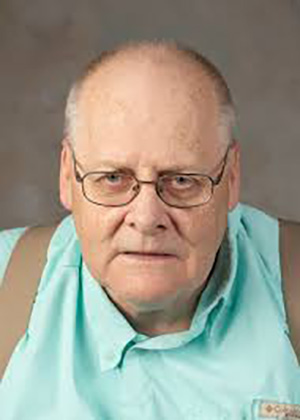By GREG MARKLEY
On the first day of high school in 1971, as freshmen, two friends and I bought elevator tickets from burly and angry-looking seniors. We knew there was no elevator, but paid 50 cents for a ride anyway, given the scary scene. (Probably this ploy happens even today, somewhere.) That treatment made us in the all-boys school dream of when we would be seniors, on the flip side of such encounters.
September 1975 arrived. As seniors, we looked around for freshmen. But girls were admitted that year, so teachers nixed traditions like shakedowns. These memories of ranks remind me of Senior and Junior U.S. senators. Except that Sr. senators usually provide fine mentoring to the Jrs.
Georgians elected two new U.S. senators last January, both seats were taken by Democrats without prior Senate or House experience. So Rev. Raphael Warnock and Jon Ossoff decided in a rarely performed way who would be Senior senator and who Junior senator. Ossoff, the youngest of the 50 senators at 33, would be the Senior by title among the two Georgians. The deciding point was that his surname begins in “O” and the reverend’s last name starts with “W.”
This may confuse some people. Many know that the longest serving of the two elected senators for a state gets the honor of being the “Senior” one. But others believe that the Senior senator is the oldest, in which case the 51-year-old Warnock would have the honor. Trouble came when the two new senators were elected the same day, so neither one was automatically the “Senior.” The tiebreaker was Ossoff’s name as coming first alphabetically.
“About all I can say for the United States Senate is that it opens with a prayer and closes with an investigation,” said humorist Will Rogers. But Georgia’s double election leading to the question of who would be Senior senator was handled without prayer or investigation.
An article in the Columbus Ledger-Enquirer in January 2021 sensibly asked, “Will Ossoff or Warnock be Georgia’s senior senator? The answer is a simple one.” There is a traditional order to determine U.S. Senate seniority. Of those with former government service, those with Senate service or were U.S. vice presidents are said to have the greatest seniority for the Senate. For new senators lacking government service, the new senator whose state has the largest population gains senority first.
Senior senators for each state have mostly an honorary designation. Yet when a big federal program is approved for a state, the Senior senator usually makes the announcement. Conversely, when a military base is targeted for closure, the Senior senator is likely to be the first person to be told by the president and secretary of defense. Also, having been in office many years, Senior senators are normally very helpful to Junior senators, in a variety of ways. (When the two senators are from different political parties, though, friction may appear.)
In Massachusetts, John Kerry was Junior senator for 24 years, until Ted Kennedy died. Then Kerry was Senior MA Senator for three and one half years, leaving office to serve as secretary of state for President Obama. Vermont’s Bernie Sanders, an Independent who usually sides with the Democrats, will finally become Senior senator when colleague Patrick Leahy retires in January 2023.
In the end, it’s the overall seniority rank, and committee chairmanships, that provide power to senators. Just ask Alabama’s Richard Shelby, who has served as chairman and ranking member on several committees. His powerful positions on the Appropriations Committee helped our state tremendously, from Huntsville to Mobile and many beneficiary areas in-between.
Shelby is ranked 4th in the entire Senate, an achievement deriving from long tenure and dedicated work. Sen. Tommy Tuberville outranks only California’s Alex Padilla and the two Georgia senators. Padilla was appointed to succeed Vice President Kamala Harris. But again, Tuberville has only been a senator since Jan. 3, 2021.
After Shelby retires in January 2023, Tuberville ascends to the Senior position. There are six candidates running for the open seat; he or she becomes Junior senator upon arrival in the Senate. It will be a joyful swearing into “the world’s most deliberative body.” Unlike in my high school years, I don’t expect to see any new senators fall prey to being charged an elevator fee.
Greg Markley first moved to Lee County in 1996. He has Masters’ in education and history. He taught politics as an adjunct in Georgia and Alabama. An award-winning writer in the Army and civilian life, he has contributed to the Observer for 12 years. gm.markley@charter.net.

